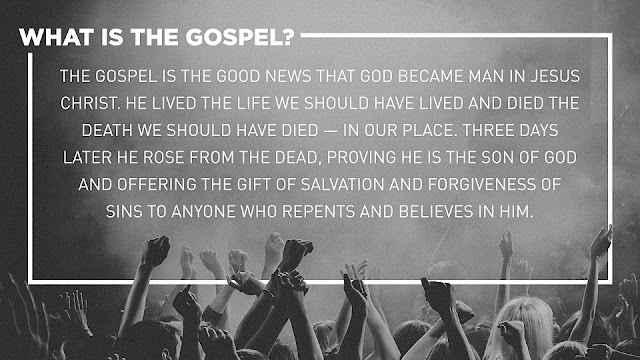The civil war continues between the remnants of the house of Saul and David’s forces. The war was fierce and brutal. But slowly David gained the upper hand.
As it says in verse 1 of 2nd Samuel 3: “The war between the house of Saul and the house of David lasted a long time. David grew stronger and stronger, while the house of Saul grew weaker and weaker.”
During this extended period of conflict and warfare, several children were born to David, so this must’ve lasted several years. The children born to him were Amnon, Kileab, Absalom, Adonijah, Shephatiah, and Ithream. All of them were born while David lead from Hebron. And it makes sense, we know from the previous chapters that David lived in Hebron for 7 and a half years.
First point today, God blesses David with much fruitfulness. Children are a gift from God. And David is abundantly blessed. He has many children in Hebron. He has a beautiful family. He is blessed. God loves to bless us and help us, as we follow Him.
Then we shift over to King Ishbosheth, who is ruling over the forces of Saul. Ishbosheth is Saul’s only remaining son after his death in battle. Abner is the chief military leader under Ishbosheth, and we see some drama in verses 6 through 11:
It says, “6 During the war between the house of Saul and the house of David, Abner had been strengthening his own position in the house of Saul. 7 Now Saul had had a concubine named Rizpah daughter of Aiah. And Ish-Bosheth said to Abner, “Why did you sleep with my father’s concubine?”
8 Abner was very angry because of what Ish-Bosheth said. So he answered, “Am I a dog’s head—on Judah’s side? This very day I am loyal to the house of your father Saul and to his family and friends. I haven’t handed you over to David. Yet now you accuse me of an offense involving this woman! 9 May God deal with Abner, be it ever so severely, if I do not do for David what the Lord promised him on oath 10 and transfer the kingdom from the house of Saul and establish David’s throne over Israel and Judah from Dan to Beersheba.” 11 Ish-Bosheth did not dare to say another word to Abner, because he was afraid of him.”
Point number two today, loyalty is very important. Stay loyal to God. Keep your commitment. Stay with God to the end. If something offends you, don’t switch sides over and over. Work things out. In this situation though, God is working things out so that David will be king. But Abner’s behavior is still off. Then again, it was unwise for Ishbosheth to falsely accuse Abner. Don’t falsely accuse someone if you don’t know if it’s true or not. It can lead to someone being enraged and lashing out in rebellion against you.
King Ishbosheth accuses Abner of sleeping with a woman inappropriately. We don’t really know if there was any truth to the allegation. But Abner gets very mad. This shows how powerful Abner had become. Ishbosheth didn’t really have much power, in fact he feared Abner. And Abner gets very upset.
Abner gets so angry, he decides to switch sides:
In verses 12-15: Then Abner sent messengers on his behalf to say to David, “Whose land is it? Make an agreement with me, and I will help you bring all Israel over to you.”
13 “Good,” said David. “I will make an agreement with you. But I demand one thing of you: Do not come into my presence unless you bring Michal daughter of Saul when you come to see me.” 14 Then David sent messengers to Ish-Bosheth son of Saul, demanding, “Give me my wife Michal, whom I betrothed to myself for the price of a hundred Philistine foreskins.”15 So Ish-Bosheth gave orders and had her taken away from her husband Paltiel son of Laish.”
David insists on getting Michal his old wife back, who was the daughter of Saul.
But she was already remarried to another man. It says in verse 16, “Her husband, however, went with her, weeping behind her all the way to Bahurim. Then Abner said to him, “Go back home!” So he went back.”
An ugly situation. Does David really need another wife? He has many already. But he did pay a high price of Michal. So he insists on taking her back. But her husband follows weeping, until Abner yells at him to go back home.
Sad situation. Abner’s behavior here really bothers me. He’s self seeking, playing both sides against each other, and trying to gain power and authority.
So Abner begins to plotting to get Israel to shift behind David’s rule. It says in verses 17-21:
“17 Abner conferred with the elders of Israel and said, “For some time you have wanted to make David your king. 18 Now do it! For the Lord promised David, ‘By my servant David I will rescue my people Israel from the hand of the Philistines and from the hand of all their enemies.’”
19 Abner also spoke to the Benjamites in person. Then he went to Hebron to tell David everything that Israel and the whole tribe of Benjamin wanted to do. 20 When Abner, who had twenty men with him, came to David at Hebron, David prepared a feast for him and his men. 21 Then Abner said to David, “Let me go at once and assemble all Israel for my lord the king, so that they may make a covenant with you, and that you may rule over all that your heart desires.” So David sent Abner away, and he went in peace.”
Point number three, God is working things together for good, for David, to bring the nation together under one banner. He is working through the most unlikely man, Abner, someone who served Saul, and now is serving David. Sometimes God works things out even through our enemies for our good. God can use any situation, good or bad, to work out His will for our lives. We can trust Him. We can trust Him completely to do what He said. He can even use this wayward leader, Abner, to bring the nation together. Don’t assume he can’t use you either. He can use anyone for His kingdom purposes.
So it seems like everything is going good right? Things are going to work out for Abner? Maybe it seems that way. But, don’t forget about Joab. Remember, Abner killed Joab’s brother Asahel.
What happens next? In verses 22-25: “Just then David’s men and Joab returned from a raid and brought with them a great deal of plunder. But Abner was no longer with David in Hebron, because David had sent him away, and he had gone in peace. 23 When Joab and all the soldiers with him arrived, he was told that Abner son of Ner had come to the king and that the king had sent him away and that he had gone in peace.
24 So Joab went to the king and said, “What have you done? Look, Abner came to you. Why did you let him go? Now he is gone! 25 You know Abner son of Ner; he came to deceive you and observe your movements and find out everything you are doing.””
Joab is very upset that David let Abner escape alive. He hates Abner. And he assumes Abner is going to double-cross David.
Joab is in an uproar now. He is hot with anger.
Point number four, when you are hot with anger, pause. Do anything you can to get alone, and pray and reflect, or talk to someone. Don’t take rash action. When you’re tempted to make an angry phone call, pause and wait. When you’re tempted to shoot out that angry email, hit “save as draft” first. When you’re tempted to shoot out your dirty laundry onto Facebook, wait a minute, and write in your journal instead. Talk to a friend one on one instead.
The Bible says “be angry, but do not sin.” It’s ok to be angry. We do get angry. Being angry is not a sin. But, allowing your anger to get out of control where you hurt someone or lash out, now it’s gone into the realm of sin.
Joab sadly allows his anger to overcome him.
It says in verses 26-27: “Joab then left David and sent messengers after Abner, and they brought him back from the cistern at Sirah. But David did not know it. 27 Now when Abner returned to Hebron, Joab took him aside into an inner chamber, as if to speak with him privately. And there, to avenge the blood of his brother Asahel, Joab stabbed him in the stomach, and he died.”
Joab murders Abner in cold blood. He doesn’t kill him in battle or defeat him in combat, he murders him. And its wrong, and sinful. Let’s see how David deals with this turn of events, verses 28-32:
“28 Later, when David heard about this, he said, “I and my kingdom are forever innocent before the Lord concerning the blood of Abner son of Ner. 29 May his blood fall on the head of Joab and on his whole family! May Joab’s family never be without someone who has a running sore or leprosy or who leans on a crutch or who falls by the sword or who lacks food.”
30 (Joab and his brother Abishai murdered Abner because he had killed their brother Asahel in the battle at Gibeon.)
31 Then David said to Joab and all the people with him, “Tear your clothes and put on sackcloth and walk in mourning in front of Abner.” King David himself walked behind the bier. 32 They buried Abner in Hebron, and the king wept aloud at Abner’s tomb. All the people wept also.”
King David mourns for Abner, and lays the blame on Joab and his family. Then David sang a lament, in verses 33-34:
33 The king sang this lament for Abner: “Should Abner have died as the lawless die? Your hands were not bound, your feet were not fettered. You fell as one falls before the wicked.” And all the people wept over him again.”
As David mourns Abner, he also refuses to eat. He becomes weak for the sake of mourning. And this was pleasing to the people and to Israel. In verses 35-38 it says:
35 Then they all came and urged David to eat something while it was still day; but David took an oath, saying, “May God deal with me, be it ever so severely, if I taste bread or anything else before the sun sets!”
36 All the people took note and were pleased; indeed, everything the king did pleased them. 37 So on that day all the people there and all Israel knew that the king had no part in the murder of Abner son of Ner.
38 Then the king said to his men, “Do you not realize that a commander and a great man has fallen in Israel this day? 39 And today, though I am the anointed king, I am weak, and these sons of Zeruiah are too strong for me. May the Lord repay the evildoer according to his evil deeds!””
I’m convinced that this incident could’ve caused the nation to be divided again. But David makes it so clear that he didn’t kill Abner. Imagine if David had killed Abner! Abner had been the one gathering the people behind David in Israel. Israel probably would’ve been divided again. But David makes it perfectly clear that he didn’t do anything wrong and it was entirely on Joab.
Last point for today, sometimes we have to show people, hey, I didn’t do anything wrong in this situation. This is the truth. These are the facts. And I am innocent here, based on the facts. Sometimes we think well Jesus didn’t defend himself so we shouldn’t defend ourselves. But in this situation, it’s right for David, for the sake of keeping the nation together, to make sure the truth gets out there. He needs to make sure Israel knows that Joab killed Abner, and he didn’t do it. Otherwise it could worsen the civil war. But now, all of Israel is pleased with David, because David makes sure everyone knows that it wasn’t him, and that he is mourning Abner deeply. And I’m sure that mourning was entirely genuine.
So to review, our main points today are as follows:
1. God blesses his servants abundantly, to be fruitful
2. Be loyal to your commitments / Don’t accuse someone falsely
3. God is working everything together for good behind the scenes.
4. When you are angry, you must pause and not sin.
5. Let the facts be known for the good of others.














